Is it a crazy world?
Is it a crazy world?
The victory of Donald Trump raises many questions, and answers too.
Matt Drayton (Spencer Tracy) directs a liberal newspaper in the also liberal San Francisco. Matt is a successful man and, as every Friday afternoon, he arrives at his beautiful house to change his clothes to play golf with a Catholic priest friend of his. But that Friday Matt is in for a surprise. His wife Christine (Hepburn) and his daughter Joanna, 23, are very excited. Joanna has just returned from a trip in which she has met the man of her life, a certain Dr. John Prentice. The couple will go to Switzerland that same night, and Joanna will marry him. Dr. John Prentice appears. Dr. Prentice (Sidney Poitier) is a handsome man, with an impressive look that contrasts with the scruffy old Matt, short, wrinkled, his glasses distorted and his shirt collar badly put on. There is something else: John Prentice is black. Matt has always defended racial equality in his newspaper, that’s not a problem, maybe, is it? Joanna is his daughter, the sunshine of his eyes. Matt begins to seem that everything is going very hastily. Matt is a lifelong liberal but he knows very well that there are many people with prejudices that will put many problems to the couple. Then, Dr. Prentice adds even more pressure on poor Matt because, in private, he confesses that, being well aware of the adoration that Joanna has for her father, the wedding will not be celebrated if Matt does not give his nod. Sensible doctor Prentice understands that the lack of support from Joanna’s parents would be an insurmountable difficulty. Joanna knows nothing of this, nor does she know anything about the objections that are forming in her father’s mind.
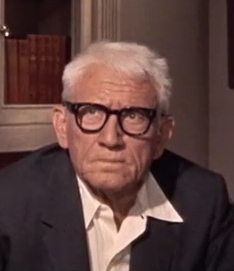
Matt Drayton
The Catholic priest appears and, once he knows what’s going on, he joins the cause of the interracial marriage with even more fervour than enthusiastic mother and daughter. Matt is chocking. He has to do something. Yes! That’s it! He is a journalist, he runs a newspaper. He must find out who is the real doctor Prentice, the upstart who is trying to marry his daughter. If he turns out to be an imposter, if it were not the doctor who claims to be … Oh, then everything would be solved! Matt uses his contacts, makes some phone calls and waits. Truth will be known soon. And the answer comes: John Prentice is kind of Capitán Trueno and Superman combined. His list of merits is endless and makes him worthy to the Nobel Prize in medicine, or the Nobel Peace Prize, or both altogether. The devious Prentice is so honest that he has even left some coins in exchange for a phone call he has made to his parents. His parents? Certainly. Mr and Mrs Prentice will also come to dinner from LA.
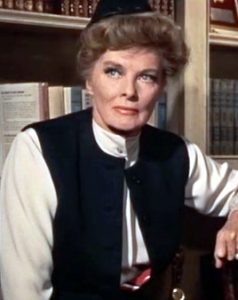
Christine
Matt is at his limit. Indeed, Dr. Prentice is the man that every father would want for his daughter; the problem is that he keeps being black. Matt has become a conservative all of a sudden, he gets angry with his wife, he quarrels with his priest friend, and worst of all, he is afraid to tell his own daughter what he thinks. Matt does not recognize himself. The arrival of John Prentice’s parents only adds fuel to the fire. John Prentice Sr., a truly honest man, with basic schooling and lifelong conservative, opposes that interracial marriage even with more conviction than Matt.
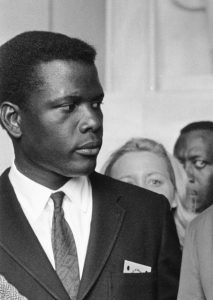
Dr. Prentice
Now and then
Guess who comes to Dinner (1967), directed by Stanley Kramer and written by William Rose, was the last movie with Spencer Tracy and Katherine Hepburn. Tracy would die 17 days after the filming ended. In that not so distant 1967 there were still 17 US states that banned explicitly interracial marriages. There was no mood for jokes. On April 4, 1968, Rnd. Martin Luther King, an activist for equal rights for all races, was shot dead and on June 6, the progressive candidate for the presidency of the United States Robert Kennedy was killed too.
Today everything has changed, everything is different, very different from what it was in 1967. America has already had its first black president, Barack Obama, for two terms, from 2008 to 2016. Not surprisingly, Barack Obama keeps an extraordinary resemblance with the idealized doctor John Prentice from Stanley Kramer’s film, elegant, good speaker and lofty ideals. And his wife Michele, a brilliant lawyer with smart appearance, is a female version is even closer to the ideal. It is not just the Obamas. Two of the most prominent Republican candidates of the 2016 presidential campaign were sons of Cuban immigrants: Ted Cruz, the guardian of conservative essences, and Marco Rubio, the favourite of the establishment of the Grand Old Party. And we shouldn’t forget that the Democratic candidate was a woman: Hillary Clinton. The 2016 presidential campaign seemed to dispel all those shadows, fears and prejudices that loomed over the Draytons and the Prentices in 1967. Yes, today, among reasonable people, sex or race inequality cannot be justified. But have things really changed?
Well, to begin, it was the Caucasian male Donald Trump who won. A different world? In the US, many people of colour would say that their situation has not improved during Obama’s eight years. They are right. Numbers speak loud and clear. According to data from the Federal Reserve, in 2016 the net wealth of the median white household was ten times greater than the median black household, and gap bigger than in 2007, when Obama was about to arrive. This tells us that things might have changed upstairs but not downstairs. No problem, Donald Trump comes to rescue, and Marine Le Pen and Nigel Farage. And their solution comes with a spine-chilling speech against otherness. Back in 1967, indeed, or worse.
Looking at this state of affairs, we can pose a very appealing hypothesis. Americans, English, French, and many others are chauvinists are recalcitrant racist chauvinists. Those low-income white Americans, not much educated, not much talented, have made a push to return to the longed-for privileges of sex and race that they enjoyed in the 50s, golden age in which they called the shots and the Ku Klux Klan he was at ease. They are an easy target, indeed. It is very well regarded to oppose and despise those individuals. A relentless little voice will hammer at the ear of each one of those undesirable failed chavs: «You deserved it, you deserved it». The Calvinist thought that prevails in America, and increasingly everywhere, gives a moral category to economic success. This is terrible. If you are poor because of discrimination of race or sex, we know it happens, you will suffer hardship but your failure is morally justified, and you’ll be spared from the stake. But economic failure has no moral justification if you are a Caucasian male. You are bad, not just incompetent but a bad person. This is really terrible, virtual tentacles and multimedia will catch you wherever you hide, you cannot escape your blame, you are the evil Cain of Genesis but unable to flee and hide east of Eden, they have Internet too. Consequently, to acknowledge being so bad brings to madness, and that is why we need so many self-help books and so many sessions at the psychologist. Are those Americans who voted Trump really so despicable?
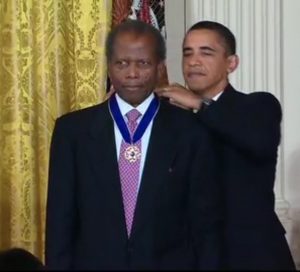
Dr. prentice and Obama
We could pose a second hypothesis. It might be, just it might, that this yearning for the 50s was not for the privileges of race or sex but for the world incarnated by the General Motors, an industrial world of security, a world in which people made tangibles, great machines that made you feel proud of having made them, a world where we know what to expect, where we are allowed to dream of daughters and sons going to the university, where we are certain to pay up the mortgage on the house and to have a decent retirement. Now this is lost, only uncertainty is left. To uncertainty joins inequality. The country comes out of the crisis, macroeconomic data improve, but I still look precarious. The ship of national economy harshly buffeted by the Great Recession at last straightens the course at a good cruising speed. But, hey! They have forgotten me! Hey! I am here! Nobody hears. The boat moves away and here I stay, stranded in the water. Uncertainty and inequity are serious, but there is more to come: we are getting worse. In 2016, the consultancy McKinsey published a report that found that many households lived worse than in 2000. The report also had a very significant result. The main cause of dissatisfaction does not come because of Jones are doing better, but because parents see that their children will be worse off than them. The poor and the unsuccessful are not envious but parents who care about their children.
Poverty is ugly
In the movies, the disadvantaged appear handsome and kind, deserving of the best luck. We have the enslaved Israelites in The Ten Commandments of Cecil B. De Mille, 1956. They were definitely prettier, smarter and nicer than their Egyptian opponents. In the 70s we found the black slaves of Roots, the TV series. Noble Kunta Kinte and his adorable descendant incarnated by the Irene Cara who would sing Fame were far superior in ethics and merit to their degenerate white masters. More recently, we find Leonardo di Caprio in Titanic, 2000, so poor that he cannot afford his passage but, indeed, he dances more elegantly than any of those first class gentlemen and he is a real hero till the end. And yet, I think that poverty is ugly. Poverty is ugly and it cannot be otherwise because a disadvantaged socioeconomic position usually will bring a worse health and a lower level of educational attainment, because if you do not eat well you are not healthy, and if there is not enough for books and good teachers, learning becomes much more difficult. The majority of disadvantaged are not like Dr. John Prentice, no matter what colour they are. John Prentices do exist, they are very admirable, but they are rare and exceptional, an exception. It is certain there were geniuses and celebrities that stemmed from humble origins, in the same way that there are saints and heroes, but they are the exception that justifies the rule, a tiny minority, that is why they are saints and heroes. Originally, in ancient Greece, hero meant being the son of a god and of a mortal, a demigod, which leads us to think that, despite the many bed chamber affairs Olympian gods might have, heroes were a rarity.
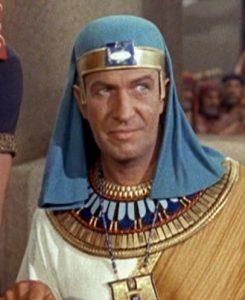
The Ten Commandments (Vincent Price as Egyptian)
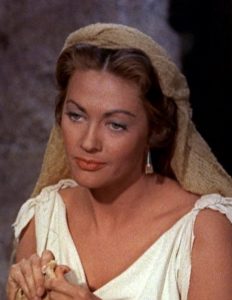
The Ten Commandments (Yvonne de Carlo as Sephorah)
English political commentator Owen Jones denounces in his book «Chavs» the bad social consideration that working people have in the English language of today. They are the common people, the vulgar, the rabble (group of vulgar or vulgar people, from the Greek kéleusma, rhythmic song of the chief rower to direct the movement of the oars). Hillary Clinton referred to the voters of Trump as the racist, macho and all possible ists half of electorate. She did not apologize, only admitted they could be less than half. That was another mistake. On March 4 of that election year of 2016, Edward Luce wrote in the Financial Times the article «The new class warfare in America.» He also echoed the disdain for Trump voters, low-income whites. The problem for Hillary was that people who define themselves as having low incomes had gone from 33% in 2000 to 48% in 2015.
Apollo or Dionysus
Nowadays, no reasonable person denies the right to vote on the grounds of race or sex, but, on the other hand, we often hear that old tune: «when you see so many lunatic around, and you think they vote too, you doubt democracy”. Nothing new under the sun. This argument was already used by the elites of the nineteenth century to oppose universal suffrage. Initially only the landowners were allowed to vote. If the rabble votes, God knows what will come out. In a program of varietés in late 70s, the wife of a US diplomat also played the old tune, so common at the time: the Spain of the 50s and 60s was not prepared for democracy. And when would it be? Majorities can also be wrong, we have seen it. Do they have a right to be wrong? No less than elites. Do angry people have the right to vote for a Donald Trump or a Marine Le Pen? They may be disappointed, and many would be unable to justify their vote. It is Apollo against Dionysus, logic and reason against otherness and the unwonted. Barack Obama will publish his memoirs that will surely be very well written, neat and Apollo-like, but the disadvantaged will care little. Upon hearing the election results of the 2016 presidential elections in the United States, Paul Ryan, the leader of the Republican majority in the House, an Apollo of the purest republican establishment mettle and a staunch political enemy of Trump, made an interesting reflection: «Maybe Trump has heard something from of the people we have not heard.»
Does it make sense to listen to the unreasonable ones? Who can tell? Though, when we look at the decline of middle class, it might make a lot of sense that the reasonable ones had empathy with people in the ranks because, if not, it might occur that many of the ones who are reasonable nowadays become unreasonable. We cannot ignore lowly people. At the end of John Ford’s movie “The Grapes of the Wrath” based on the novel by John Steinbeck Ma Joad says: “Rich fellas come up an´ they die an’ their kids ain’t no good an ‘they die out. But we keep a’ comin’. We’re the people that live. They can’t wipe us out; they can’t lick us. We’ll go on forever, Pa, ‘cause we’re the people”.